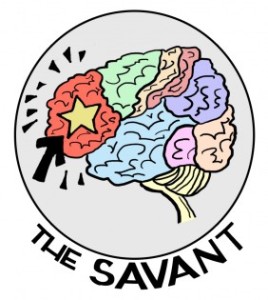With 740 million worldwide users, LinkedIn can help you establish a wide professional network. It is also a powerful marketing tool that can boost or derail your job search. A reported 93% of recruiters source passive job candidates on the social network for busy professionals.. So, if you are a jobseeker and not on LinkedIn – you are basically invisible.
Tag Archives: job search
3 Ways to Master the Modern Job Search
You are successful, admired by your colleagues and proud of what you have accomplished. You have been working your way up the corporate ladder, winning regular promotions and raises. Suddenly, you start to notice that your company is moving in a new direction and you have not been invited to key meetings. Don’t wait until you are notified that their plans do not include you – you need to address the situation head on and take charge of your career NOW. 
If it has been some time since you last searched for a job, be prepared for an entirely new process. Here are 3 tips to mastering today’s complicated job search.
Continue reading
Your Online Activity Can Either Help or Hurt Your Job Search
Welcome to Part 2 of my summer 2015 blog series on what it takes to conduct a successful job search in today’s competitive job market. In my last post, I shared tips on writing a strong resume. Today’s segment: the importance of using social media in your job search.
Your online activity can either help or hurt your job search. It is not simply a matter of using social media; you have to use it the right way to find a job and impress employers. Employers use social media in their recruitment process two ways: Continue reading
Your Resume is a Valuable Marketing Tool
Welcome to Part I of my summer 2015 blog series on what it takes to conduct a successful job search in today’s competitive job market. I know it can be frustrating, so each week I will offer insight on another piece of the job search puzzle. This week, the all-important resume.
There is no denying that a strong resume is key to a successful job search, but it takes more than a professional-looking document to land a job today. Rather than your autobiography, your resume is a forward-facing marketing document that needs to position you for that next job. Employers are not looking for a jack-of-all-trades; they are looking for a Continue reading
3 Great Reasons to Customize your LinkedIn Public Profile URL
LinkedIn is the #1 job search tool in the world. Many employers consider it unprofessional for a jobseeker not to be on LinkedIn. Be sure to customize your public profile link to make it easy for employers to find you – and not someone with a similar name. It only takes a minute. Here are 3 reasons why doing this is important to your job search.![]()
1. Your LinkedIn profile is not only searchable on LinkedIn but on all online search engines. LinkedIn profiles generally rank within the top 3 results when your name is searched. (To be searchable, your public profile must be Continue reading
Frustrated by Online Job Applications?
 I hear from job seekers all the time about how time consuming the online job application process is and how aggravating it can be to submit dozens of online job applications and never hear back. You wonder if your resume even made it through the Applicant Tracking System.
I hear from job seekers all the time about how time consuming the online job application process is and how aggravating it can be to submit dozens of online job applications and never hear back. You wonder if your resume even made it through the Applicant Tracking System.
Because of the highly competitive job market, you need to sell yourself stronger than ever before to stand out from the other candidates. It is crucial that you answer every single question as well as possible, making sure your grammar and punctuation are perfect. This is difficult because the input fields you type into are so small that it can be hard to see what you are typing, and many of these online application systems do not even have a spell check feature. One typo and you are out of the running.
Many jobseekers skip over the salary question, because they do not want to be eliminated with a figure that is outside of the salary range – but you can’t do this. Make sure you answer every question, as many companies use incomplete applications as a way to weed out candidates. Continue reading
Volunteer Work Can Counteract Discrimination Against Long-Term Unemployment
Research by the University of Toronto, McGill University and the University of Chicago indicates that applicants who had been out of work for 8 months had 45% fewer callbacks from employers. A study from MIT found that someone unemployed for 1 month would typically win 1 interview for every 10 job applications, while someone out of work for 7 months has to send 35 resumes to get just 1 interview. Not only is this wrong – it can be very demoralizing for those who have been in an extended job search.  Continue reading
Continue reading
Psychological Profile Tied to Career Happiness?
Designed for hiring managers and human resource professionals, Software Advice’s New Talent Times blog shares strategies for building and managing today’s workforce. Knowledge is power. The same information that guides companies’ hiring decisions can help jobseekers sell themselves to hiring managers and target their ideal roles.
The Psychological Profiles of the Dream Team series analyzes 4 types of top performers: The Giver, the Champ, the Savant and the Matrix Thinker. They explain how these individuals tend to function in the workplace, the roles in which they excel and ones for which they are least suited.
Savant and the Matrix Thinker. They explain how these individuals tend to function in the workplace, the roles in which they excel and ones for which they are least suited.
Being in the right role is important to your overall career success. In the wrong role, an individual is typically not performing optimally which can result in a low level of satisfaction for both the worker and the manager. We all deserve to be happy in our career. Finding the best role for you is the first step.
According to these guidelines, where do you fall? Continue reading
Using LinkedIn Efficiently in Your Job Search
Once you have developed a robust LinkedIn profile, you must be an active participant to attract the attention of hiring managers and the 130,000+ recruiters that source candidates on LinkedIn.
Grow Your Network: Connect with friends, family and business contacts. Use LinkedIn as your contact database. The more connections you have, the better your odds of the right people finding you. Network with recruiters and others in your field to expand your reach. You never know where these connections may lead. But, do not just make connections — build real relationships. Get to know your connections, and schedule face-to-face coffee dates with those with whom you share a common interest. Continue reading
How to Optimize Your LinkedIn Profile to Accelerate Your Job Search
LinkedIn is the largest professional networking platform and the #1 job search tool in the world. More than 130,000 recruiters use LinkedIn to search for potential candidates to fill job openings. Having an optimized profile and being an active participant on LinkedIn will increase your visibility and make it easier for recruiters to find you.
 You must complete your profile to 100% to be considered a serious job seeker. Here are 5 tips based on best practices for optimizing your profile: Continue reading
You must complete your profile to 100% to be considered a serious job seeker. Here are 5 tips based on best practices for optimizing your profile: Continue reading
5 Tips for Successful Networking for Introverts
The most effective job search strategy combines online and face-to-face networking. Networking is about meeting others, not selling yourself. You want to build relationships with people who can provide information and open doors that will lead to more conversations. This task may seem daunting to an introvert. Here are a few tactics you can implement to give your job search the boost it needs.
1. Prepare a short Compelling Conversation Opener (COO) using this simple formula:
- Who you are
- What you do
- Who you help
- How you do it
My example: “As a resume writer and career coach, I help jobseekers find jobs that are emotionally and financially rewarding. I guide them through the job search process to make it less overwhelming and more successful.”
Practice your COO until it flows naturally. Then develop a few follow up points for when you are asked for more information. Continue reading
Don’t Hate Recruiters!
 Jobseekers are frequently frustrated with the lack of response from recruiters, but they have to remember that the recruiter works for the employer — not the jobseeker.
Jobseekers are frequently frustrated with the lack of response from recruiters, but they have to remember that the recruiter works for the employer — not the jobseeker.
Whether in-house, retained or contingent, recruiters work for the hiring companies. Their job is to find the ideal candidate for specific open positions to please the employer — their employer. A recruiter cannot put their neck on the line and submit your resume to the employer if they do not feel you would be an ideal fit. The hiring companies rely on a recruiter’s knowledge of their talent needs and their ability to identify appropriate candidates to fill those needs. If they do not deliver, the hiring companies will find another recruiter who can.
If you happen to have the perfect skill set and experience a recruiter is looking for to fill a specific position — great! If you are a very strong candidate, they may keep you in the back of their mind for future positions. But do not expect them to “find you a job”. In fact, do not expect anyone to find you a job. That is your job. Professional resume writers, career coaches, temporary agencies and recruiters are great resources that can help facilitate your job search — but it is not their job to find you a job. You have to put in the effort. Effective job search strategies include a combination of face-to-face and online networking and reaching out to a targeted list of companies.
You can always try to connect with a recruiter, but only do so for a specific job they represent, and only if you are the absolute ideal candidate for the position. (In this competitive job market — do not waste your time applying for any position for which you do not have at least 90% of the qualifications.) The more effective approach is to make sure the recruiters find you. More than 130,000 recruiters source candidates directly on LinkedIn. To attract their attention, optimize your LinkedIn profile with keywords and quantified career accomplishments that demonstrate the value you offer an employer. Request LinkedIn recommendations as social proof will validate your expertise. Continually fine tune your craft and include professional development activities on your profile to show that you are keeping up with changes in your industry.
If you are contacted by a recruiter — fantastic! Share with them your finely tuned branding statement and resume. Respond to their requests quickly, as they will continue to contact other candidates for the same position. Remember, they are focused on filling a few specific positions as quickly as they can. So, always make sure your LinkedIn profile is 100% complete and that your resume and cover letter are ready to be presented. You never know when a potential employment opportunity might arise.
Trish Thomas founded The Resume Resource in 2009 to help people advance their careers with rewarding jobs that provide more than just a paycheck. As a Career Coach and Resume Writer, she provides her clients with the tools and strategies needed to achieve their goals and guides them through the job search process to make it less overwhelming and more successful. Because she takes the time to get to know each of her clients, Trish’s clients have a very high success rate with most having interviews scheduled within 2 weeks and job offers with significantly higher salaries. www.the-resume-resource.comWhat To Do If Your Industry Is Dying
A smart career manager stays up on current trends in his/her industry. Don’t let yourself fall victim to the changing job market. If you have heard rumblings about change in your organization and see that opportunities in your field are drying up, it is time to revamp your resume to highlight your transferable skills. A few keys kills are highly desired in almost every industry:
- Communication
- Collaboration
- Analytic Skills
- Project Management
Communication – In almost every career, strong communication skills are vital. Whether communicating with clients or colleagues, you need to be able to articulate your ideas verbally and in writing. Hiring managers are looking for employees who can communicate effectively across the organization and represent the company in a professional manner.
Collaboration– In very few jobs do you operate in a vacuum. Interpersonal skills and the ability to collaborate with colleagues from diverse backgrounds is very desirable to employers. Cross-functional collaboration, co-creation and cooperation are vital for business success. Successful companies know that collaborative teams encourage creativity and innovation.
Analytic Skills – Most jobs involve collecting and analyzing information to some degree. Analytic skills are crucial in problem solving, and identifying and designing process improvements. The ability to analyze data and make decisions based on available information is needed in performance measurement, compliance and auditing functions.
Project Management – Project managers are in high demand in most industries, as almost every company is trying to work better, smarter and faster. Your ability to plan, organize, allocate resources and oversee the execution of a project to achieve a specific goal is highly transferable. In today’s highly competitive job market, jobseekers may need to broaden their job search and leverage their transferable skills to stand out from the competition.
Trish Thomas founded The Resume Resource in 2009 to help people advance their careers with rewarding jobs that provide more than just a paycheck. As a Career Coach and Resume Writer, she takes the time to get to know each of her clients and guides them through the job search process to make it less overwhelming and more successful.Jobseekers Should Take Advantage of Free Training Resources to Increase Their Marketability
 Many hiring managers are concerned that people in transition are not “work ready”. Learn new skills, keep your existing skills sharp and keep up on technology to show them that you are ready to contribute to their team’s success.
Many hiring managers are concerned that people in transition are not “work ready”. Learn new skills, keep your existing skills sharp and keep up on technology to show them that you are ready to contribute to their team’s success.
Don’t let a lack of funds hinder your marketability. There is a wealth of free training out there today. Many local libraries and community centers offer free LinkedIn, QuickBooks, and Microsoft Office classes, as well as workshops on improving your resume and effective job search strategies.
In addition, many libraries provide access to free training via Universal Class. They subscribe to the service so that their members can access the training for free. Universal Class offers more than 500 online non-credit continuing education courses for all ages. All you need to set up your free account and register for classes is a valid library card and email address. You can access the courses from the comfort of your home via the library’s website. Topics range from Accounting to Medical Billing to Real Estate.
You are welcome to enroll in up to 5 courses through Universal Class, and have up to 6 months to finish each course. You have access to your course 24/7 via the Internet and complete assignments on your schedule. Each course has a real instructor with whom you may communicate via e-mail. Keep in mind, these are non-credit courses and are not a substitute for any licensing requirements.
The OpenCourseWare Consortium is another great resource for those in transition with limited funds. The OCWC is a collaboration of higher education institutions and associated organizations from around the world to provide access to open educational content. Sponsors include MIT, Tufts University and a variety of international institutions.
An OpenCourseWare (OCW) is a free digital publication of high quality college and universityâ€level educational materials. The material is organized into courses, and often includes course planning materials and evaluation tools. OpenCourseWare are free and openly licensed, accessible to anyone, anytime via the Internet. Courses include topics such as Algebra, Photography, and Web Design, in a variety of languages. I have not personally used OpenCourseWare and would love to hear some users’ thoughts.
Keep in mind, once you have enrolled in the training program(s), add this information to your cover letter and resume to show the hiring managers that you are making the best use of your time between jobs.
Thanks for stopping by. Best of luck in your job search.
How Recent Grads Can Break Into Their Industry
 Over the past 5 years, not only have many people have become jobless, but the opportunities once available for recent college grads have become scarce. Although the economy is starting to improve, the entry-level job market is still extremely competitive. Before the recession, college grads would have won these jobs with ease, but now, they need to plan strategically. Do not wait until graduation to begin preparing for your dream job–you should start preparing the first time you step on campus your freshman year.
Over the past 5 years, not only have many people have become jobless, but the opportunities once available for recent college grads have become scarce. Although the economy is starting to improve, the entry-level job market is still extremely competitive. Before the recession, college grads would have won these jobs with ease, but now, they need to plan strategically. Do not wait until graduation to begin preparing for your dream job–you should start preparing the first time you step on campus your freshman year.
Intern. Do it. Try to complete as many internships as you can during your 4 years. Although most of them are unpaid, you are able to gain real life work experience, making them great resume builders. Not only are they a great way to learn, internships can also show you exactly what you DO NOT want to do. What if you are interning for what you thought was your dream job, but you end up hating it? It’s better to find this out early than to be stuck in a full-time position doing something you hate. Try experiencing with different types of internships too. This helps you become well-rounded and able to recognize your strengths and weaknesses. The more experience you gain from these internships, the more credibility you will have when the time comes to apply for real jobs.
Get Involved on Campus. Join clubs and other activities on campus. Find your niche and surround yourself with positive, motivated people. Learn how to work with others and gain the practical and leadership skills needed to survive in the professional workplace.
Build Your Resume. Once you complete your internships, create a general resume. List all of your qualifications, skills and accomplishments. Use this as a reference. When looking at job postings, study the employer’s requirements and tailor your resume to meet them. Go through your resume and cover letter line by line and ask yourself whether each point supports the requirements for the job. Show potential employers the value you will add to their company.
Finding a job as soon as you graduate is not a guarantee and unfortunately, you have no direct control over the process. What you can control is making yourself a more knowledgeable and attractive candidate. Job search is a long, difficult process and it can be easy to give up. Don’t let those negative thoughts hinder your motivation. Never stop learning. Read books, industry blogs and trade magazines.
Lauren Piccini is a writer, blogger and social media wiz who helps small business owners transform into credible experts in their field by increasing their brand awareness through the use of social media strategies and techniques. She is a recent grad with a degree in English from the University of Connecticut whose first work was published within six months of graduation. www.LaurenPiccini.com


